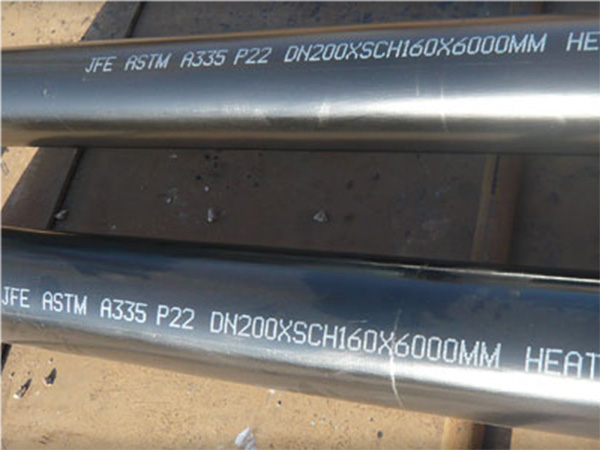Alloy steel has become one of the key materials in modern pipe systems because of its excellent properties and diverse applications. By adding one or more alloying elements on the basis of carbon steel, such as chromium, nickel, molybdenum, vanadium, etc. Alloy steel has higher strength, durability and corrosion resistance, and is widely used in many industries.

Characteristics of alloy steel
1. High intensity
Alloy steel is significantly stronger than ordinary carbon steel and can withstand greater pressures and loads. Excellent mechanical properties in extreme temperature environments.
2. Excellent corrosion resistance
By adding chromium, nickel and other alloying elements, alloy steel has excellent corrosion resistance in wet, acidic and alkaline environments.
Particularly suitable for harsh environments in the oil, gas and chemical processing industries.
3. Wear resistance and toughness
The addition of vanadium and molybdenum improves the wear resistance of alloy steel and prolonging the service life of pipeline.
Alloy steel has good toughness and impact resistance.
4. Performance strength can be customized
By adjusting the alloy composition, the properties of the steel can be optimized to meet specific application requirements, such as heat resistance, wear resistance and tensile strength.
Classification of alloy steels
1. Low alloy steel
It contains low alloying elements (<5%) and is usually used in environments with low requirements for strength and corrosion resistance, such as pipeline structures in the construction industry.
2. High alloy steel
Containing high alloying elements (≥5%), suitable for high pressure, high temperature and corrosive media environment, such as nuclear power plants, chemical plant pipeline system.
3. Special alloy steel
Alloy steels designed for specific needs, such as high-temperature alloy or steel for ultra-low temperature applications, are widely used in high-tech fields such as aerospace and deep-sea drilling.
Application field of alloy steel
1. Oil and gas industry
It can be used in piping systems with high pressure and corrosive media, such as oil well casing and delivery lines.
Able to withstand corrosion in high hydrogen sulfide environments.
2. Chemical and power industries
It can be used in pipelines transporting highly corrosive liquids and gases, such as steam pipelines and acid and alkali pipelines.
Because of its excellent heat resistance, alloy steel can also be used in boilers and heat exchangers.
3. Buildings and infrastructure
It is used for pipeline structures requiring high strength and long life, such as bridge support systems or high-rise building drainage pipes.
4. Energy and nuclear industry
Piping systems for cooling water and steam in nuclear power plants must be resistant to high temperature oxidation and corrosion.
Common alloying elements and their functions:
|
Alloying Elements
|
Effect on the Properties
|
|
Chromium
|
Increases Resistance to corrosion and oxidation. Increases hardenability and wear resistance. Increases high temperature strength.
|
|
Molybdenum
|
Increases hardenability, high temperature hardness,and wear resistance.Enhances the effects of other alloying elements. Eliminate temper brittleness in steels. Increases high temperature strength
|
|
Manganese
|
Increases hardenability. Combines with sulfur to reduce its adverse effects
|
|
Vanadium
|
Increases hardenability, high temperature hardness, and wear resistance.Improves fatigue resistance
|
|
Titanium
|
Strongest carbide former. Added to stainless steel to prevent precipitation of chromium carbide
|
|
Silicon
|
Removes oxygen in steel making. Improves toughness. ncreases hardness ability
|
|
Boron
|
Increases hardenability.Produces fine grain size
|
|
Aluminum
|
Forms nitride in nitriding steels. Produces fine grain size in casting. Removes oxygen in steel melting
|
|
Cobalt
|
Increases heat and wear resistance
|
|
Tungsten
|
Increases hardness at elevated temperatures. Refines grain size
|
|
Nickel
|
Increases hardenability. Improves toughness. Increases impact strength at low temperatures.
|
Read more : Carbon steel - a commonly used pipe material
